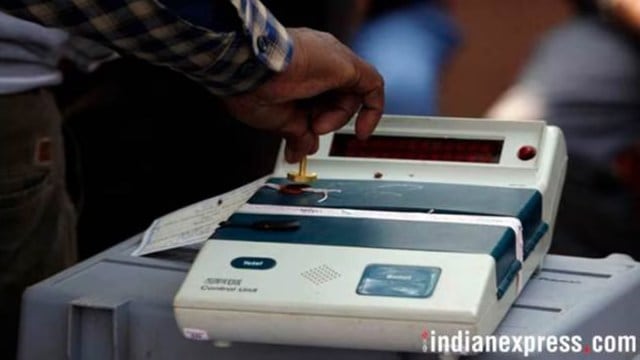From inquiring about real savings — given mid-term polls would also require imposition of the Model Code of Conduct — to whether irregularities in a polling booth would require re-polls for both Assembly and Parliamentary seats affected, the Joint Parliamentary Committee on the one-nation one-election Bills has raised over 20 questions that the Law Ministry has conveyed to the EC for its response.
The questions have been communicated to the EC by the Union Law Ministry in a letter written last week following the first meeting, on January 8, of the JPC, The Indian Express has learned.


Union Law and Justice Minister Arjun Ram Meghwal had introduced the Constitution (One Hundred and Twenty–Ninth Amendment) Bill, 2024, and the Union Territories Laws (Amendment) Bill, 2024 in the Lok Sabha on December 17.
Story continues below this ad
The two Bills would provide for syncing the terms of the Lok Sabha and state and Union Territory assemblies, paving the way for simultaneous elections. The two Bills were referred to a JPC.
Besides questions on logistics such as the requirement of Electronic Voting Machines (EVMs) and actual expenditure and real savings, the letter, it is learned, seeks clarification on how the EC will conduct polls simultaneously for a large number of Assembly and Lok Sabha constituencies over eight hours.
There are questions on what effect the proposed constitutional amendments would have on the role of EC; how simultaneous elections would address the issue of mid-term polls or bye-elections triggering impositions of the Model Code of Conduct—and whether these would still disrupt governance and defeat the purpose of holding all elections together.
Given that the Centre is the prime mover behind simultaneous polls, the letter also has a question on concerns expressed by JPC members on its impact on regional politics, with apprehensions that this could lead to political apathy and indifference among regional parties affecting local political dynamics and cultural ethos.
Story continues below this ad
Also, if irregularities are detected at a polling booth during simultaneous elections, would re-polling be required for both Assembly and parliamentary elections at that booth?
The Indian Express has learned that the information has been sought from EC so that the Law Ministry can then prepare a written response and submit it to the JPC. While the next meeting of the JPC is yet to be announced, it is likely to be held by the end of the month.
This isn’t the first time the Law Ministry has asked the EC for its inputs on simultaneous elections. In March 2023, the 22nd Law Ministry had sent a questionnaire to the poll panel on behalf of the Law Commission, which also studied the need and logistics of simultaneous polls, but did not publish its report before its term ended in 2024.
At that time, the EC had told the Law Commission that it would need at least Rs 8,000 crore for procuring EVMs, while the cost of transportation, warehousing, first-level checking etc. would be additional.
Story continues below this ad
Following this, last year, the Law Ministry had reached out to the EC again, but this time on behalf of the High-Level Committee (HLC) headed by former president Ram Nath Kovind on the same issue. Although the HLC has sought a meeting with the EC, it didn’t happen and the latter, instead, submitted the same reply to the HLC that it had provided to the Law Commission’s queries the previous year.
The two Bills introduced by the Union Law Minister during the last winter session are based on the report of the HLC which submitted its final report to President Droupadi Murmu in March 2024.
As per the Constitution amendment Bill, three Articles are proposed to be amended and a new Article 82A will be inserted.
Article 82A provides for holding simultaneous elections after the “appointed date” to be notified by the President on the first sitting of the Lok Sabha post an election. All Assemblies being elected after this appointed date, which will be date of the first sitting of the Lok Sabha, will have their term curtailed to end with the term of that Lok Sabha. After that, the Lok Sabha and state Assemblies will have simultaneous elections. The Bill also says that if a legislature is dissolved sooner than the full term, then mid-term elections would be held for the remainder of the full-term.
Story continues below this ad
Although the poll watchdog has always been on board with conducting all elections simultaneously, in 2015, when the Parliamentary Standing Committee on Personnel, Public Grievances, Law and Justice asked for its inputs on the issue, the EC had highlighted some “difficulties”.
The Parliamentary Standing Committee’s report said: “The chief issue highlighted by them is that simultaneous conduct of elections would require large-scale purchase of Electronic Voting Machines (EVM) and Voter Verifiable Paper Audit Trail (VVPAT) machines. For conducting simultaneous elections, the Commission expects that a total of Rs 9,284.15 crore will be needed for procurement of EVMs and VVPATs. The machines would also need to be replaced every 15 years which would again entail expenditure. Further, storing these machines would increase the warehousing cost.”











